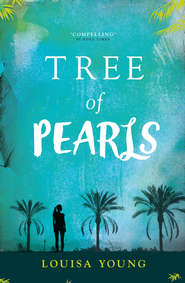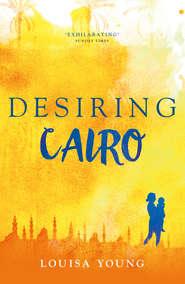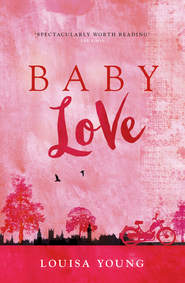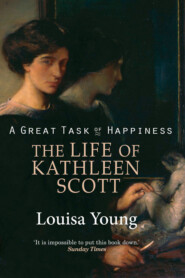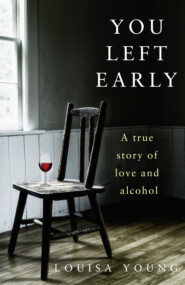По всем вопросам обращайтесь на: info@litportal.ru
(©) 2003-2024.
✖
My Dear I Wanted to Tell You
Настройки чтения
Размер шрифта
Высота строк
Поля
He was furious, furious, furious.
*
Rain was gushing down so hard the drainpipes were rattling and overflowing on the back of Terence’s building, and the sky was bruise-coloured at five in the afternoon. Riley bought a newspaper. Over there, men of many nations were fighting the battle of the Marne. The light was bad and Terence couldn’t draw.
He said, ‘Would you like a cup of tea or a beer or something? Wait till it blows over?’
Riley said he’d have a cup of tea, and proceeded to make it on Terence’s little gas ring. The milk jug he kept on the window ledge for the cool (not that it was much warmer inside) had filled up and overflowed already with rainwater. They couldn’t be bothered to go all the way down to get more, so they drank their tea black. Terence brought out some buns, and tried to start up a discussion on proportion and perspective, using the raisins as examples. Riley was not responsive. He was staring round the studio, at the kit, the space, the myriad signs of relaxed independence and creativity. Why should talentless Terence have all this, and Nadine not?
Terence lit a small cigar. ‘What do you think about how the war is going?’ he asked.
‘If we had female succession,’ said Riley, containing his restlessness in a sort of vicious languor, ‘we’d be on the other side. Think about it.’ (He was copying Terence’s quiet confidence. He was mastering it) ‘If Queen Victoria had been succeeded by her eldest daughter, who was . . . ?’
‘Can’t remember,’ said Terence. ‘She had so bally many.’
‘Princess Victoria,’ said Riley, noting that it was not necessary to be well up on the entire royal family to pass, ‘and bearing in mind that Princess Victoria was married to . . . ?’
‘The Pope?’ drawled Terence.
‘Emperor Frederick the Third. She’s Kaiser Bill’s mother. So, Kaiser Bill would be King of England, and we’d all be fighting alongside the Hun.’
‘I say,’ said Terence. ‘Isn’t that treason?’
‘No,’ said Riley. ‘It’s just another truth that people don’t care to look at.’
‘Will you go, do you think?’ Terence asked. ‘I mean, do you think you could? I hope I wouldn’t have to be in it because, to be honest, I’ve been reading the papers, you know, about what went on at Mons and so on, and the Marne now, and of course it will be over by Christmas but, you know, even for a few weeks, I don’t think I could face it – I’m a bit of a coward.’ He looked up, almost shyly. ‘Don’t you think that’s often the case, though, when a man has an artistic temperament? Sir Alf, for example. Of course he’s too old, but could you imagine Sir Alf ever having been the kind of man who could be a soldier? Of course not. Men like him – like us – aren’t the type. But you – you’re different but I do think that you also have an artistic temperament. No, I do. Considering you’ve had no proper training you’re bloody talented. Which some people might be surprised by, you being, as it were, working class . . . but I really don’t see,’ said Terence, aware that he was conveying a great favour, ‘that that’s any barrier to sensitivity. And what is an artistic temperament other than sensitivity? Really?’
Riley reached forward to help himself to another bun, and then lay back in his chair, arranging his legs in a stylishly negligent fashion. Sometimes he completely understood his mother’s view of the posh. I am, after all, as it were, working class. I should, no doubt, after all, bally well accept that I am, after all, as it were, working class.
Ah, but I fucking well don’t accept . . .
Am I perhaps developing anarchist leanings?
Would Nadine want a man with anarchist leanings?
I know she cares about me.
The rain battered the windows.
‘You might as well stay for supper, you know,’ Terence continued. ‘Such a filthy night. Probably clear up later. Mrs Jones will bring up a stew and dumplings in a while. There’ll be plenty to go round – she’s good that way.’ Riley was glad to hear that people of his type were capable of generosity as well as sensitivity. Oh, stop it. Terence is all right. It’s not him you’re angry with.
‘People are saying it’s awfully romantic and noble,’ Terence was going on, ‘to fight for your country, for something you really believe in, and it is, of course it is . . . but of course the real joy and breakthrough of the romantic movement was that it means it’s no longer necessary to be hidebound by the rules of classicism, and tradition, which means, it seems to me, that all rules are there to be questioned, and all kinds of behaviour should now be considered on their own merits, not simply in the light of traditional rules and models . . .’
Riley took one of Terence’s cigars, and said: ‘I’ve always thought that one should do exactly what one wants, as long as it doesn’t hurt people.’ At this Terence smiled his very wide blond smile, and pressed Riley to another glass of smoky red wine, which Riley accepted. Hark at me! One!
‘The problem is, it does hurt people,’ he went on. ‘There’s always someone who is going to be hurt by one not doing what they want. Or by one doing what they don’t want one to do, like—’ and he had had no intention of using this example, but it leapt out, as the things uppermost in our minds tend to, unexpectedly and unwelcomely ‘—loving someone they don’t want you to love . . .’
Terence understood completely. Riley was glad to be understood. His fury and hurt about Nadine’s removal were beginning to surge and shovel around inside him now, fuelled no doubt by the wine, so he accepted another glass, as a result of which he accepted some whisky – quite a lot – as a result of which he found himself an hour or so later spreadeagled across a green chenille blanket on Terence’s single bed with Terence’s mouth around his tumescent dick.
He liked it. Oh, God, it was magnificent, the wonderful warmth, and surging . . .
At least, his dick liked it. His dick absolutely loved it.
Riley lurched from the bed, pushing the blond head aside. Terence called out to him but already Riley was staggering like a clown in his falling-down trousers; with his shirt-tails flying he was down the many flights of whirling stairs, out into the storm, hurtling up Exhibition Road, making distance, his heart battering, his chest tight, clambering the black railings into the park. He flung himself breathless on the turf on his back. The rain was pouring down, punching his face.
A big girl’s blouse, a posh man’s plaything with a fake posh accent, nancy boy to a nancy posh artist in nancy fucking Kensington smoking fucking cigars. Sensitivity, my arse. Artistic temperament and fucking sensitivity.
Fucking posh fucking
But they’re not all . . . said a sane little voice beneath his fury.
Was it all based on that? Bloody Terence – and Sir Alfred? He’d never even noticed Sir Alfred wasn’t married – it had never . . .
Nadine –
Nadine . . .
Bloody Waveneys, bloody bloody posh bastards all the fucking same.
Not good enough for their girl, only fit to be used by their boy.
I should just go round there and . . .
Fury was consuming him. The first person – other than himself – to touch it had been a man. The first time he came off – other than by his own hand – a man. A man he liked. A coming off he liked.
Do I go to hell now? To prison, certainly, if anybody found out. Or I’ve got some horrible disease . . .
And now he would have to lie to her all his life.
What life? What life, exactly, was he imagining anyway? How could he imagine any life with her? How would that ever come to be? Nadine will spend her life with a gentleman. You are not a gentleman. It’s been made perfectly clear.
Maybe, but I’m not like Terence either . . .
Yes, you are. You did it, you liked it – you’re one of them. You always said you didn’t mind what people did but look at you now . . . You’re ashamed because you’re one of them.
I’m ashamed because I’m not one of them. If I was I wouldn’t mind . . .
Really?
I’d be up there still with Terence . . . well, maybe not Terence . . .
Oh? Who, then? What handsome man do you yearn for?
Nobody! Nobody! My mother was right, they just want something from you . . .
He lay until the rain was pooling in his coat, his limbs gradually seizing up with the cold and the wet. Finally he rolled over and slept a little in the short light night, his nose in the short brown and ivory-white stalks of the cropped grass.
Within hours the day dawned, cool and clear. He scraped himself up, brushing the grass from his coat and trousers, tucking in his shirt, rubbing at his face as if that would make it look better. He didn’t want to go up to Bayswater Road, or to Orme Square. He didn’t want to run into anyone. He didn’t know what to do. He had been out all night – Sir Alfred . . . Mrs Briggs . . . what could he say to them? What are you meant to say?






